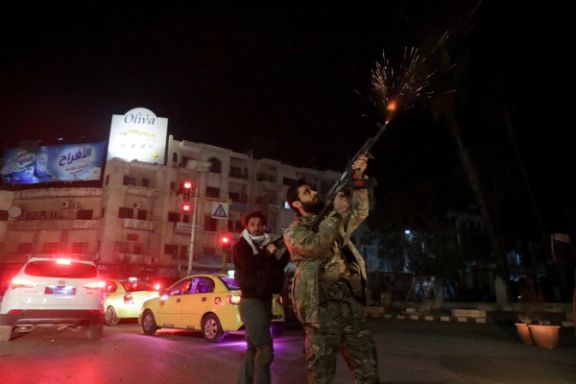Iran, Iraq and Syria hold talks as anti-Assad forces threaten Damascus

Iranian Foreign Minister Abbas Araghchi traveled to Baghdad on Friday for talks with his Iraqi and Syrian counterparts about the rapid advance of rebel forces in Syria.

Iranian Foreign Minister Abbas Araghchi traveled to Baghdad on Friday for talks with his Iraqi and Syrian counterparts about the rapid advance of rebel forces in Syria.
In a bilateral meeting Iran and Iraq agreed to hold further discussions on Syria, aiming to coordinate support for its government and people and align political positions, Araghchi said Friday after meeting his Iraqi counterpart Fuad Hussein in Baghdad.
He added that Iran is fully prepared to assist Syria as needed.
Meanwhile, Araghchi confirmed the tripartite meeting will take place but shared no further updates.
Although the Iraqi government is not formally part of the alliance between the Islamic government in Tehran and Bashar al-Assad’s administration in Damascus, it is dominated by Shia Muslims with close relations to Tehran.
Anti-Assad forces, who launched a fierce offensive just a week earlier, captured the city of Hama on Thursday, marking a significant advance southward from their northern stronghold in Idlib and bringing them closer to threatening the Syrian capital, Damascus.
Syrian Foreign Minister Bassam Sabbagh arrived in Iraq earlier this week, ahead of Abbas Araghchi.
The visits come as Baghdad faces a critical decision: whether to intervene in Syria, allow Iran-backed militias to cross its border in significant numbers, or risk the collapse of Assad, an Alawite leader whose sect is linked to Shiism.
Iranian state media have provided limited details about the purpose of the tripartite meeting, stating only that it will focus on the crisis in Syria.
The challenges facing Assad, however, are primarily military rather than diplomatic.
For Iran, the stakes are even higher, with the potential loss of nearly all its influence in the Levant, where it has heavily invested in building armed groups and bases as part of a so-called “Shiite crescent” extending to the Mediterranean Sea.
Although Iran has framed its aim as part of a broader fight against Israel, the aftermath of the October 7 Hamas attack has significantly backfired, weakening Hezbollah in Lebanon—its main proxy force—and enabling the Syrian rebel offensive.
On Thursday, Mohammad Jolani, leader of the Syrian rebel group Hay’at Tahrir al-Sham (HTS), publicly urged the Iraqi government not to intervene. In response, a spokesperson for Iraq’s Hezbollah accused Jolani of serving Israeli interests, according to Tehran-based Tasnim News, which is affiliated with the Islamic Revolutionary Guard (IRGC).
HTS, with roots in al-Qaeda, is still regarded as an extremist Sunni movement. Iraqi Shiites fear its resurgence, drawing on memories of the Islamic State group’s (ISIS) occupation of large swaths of Iraq a decade ago.
A potential victory by anti-Assad forces in Syria would sever Iran’s land route to Hezbollah, which has faced significant losses under Israeli strikes since September, including substantial armaments supplied by Iran over the past three decades.